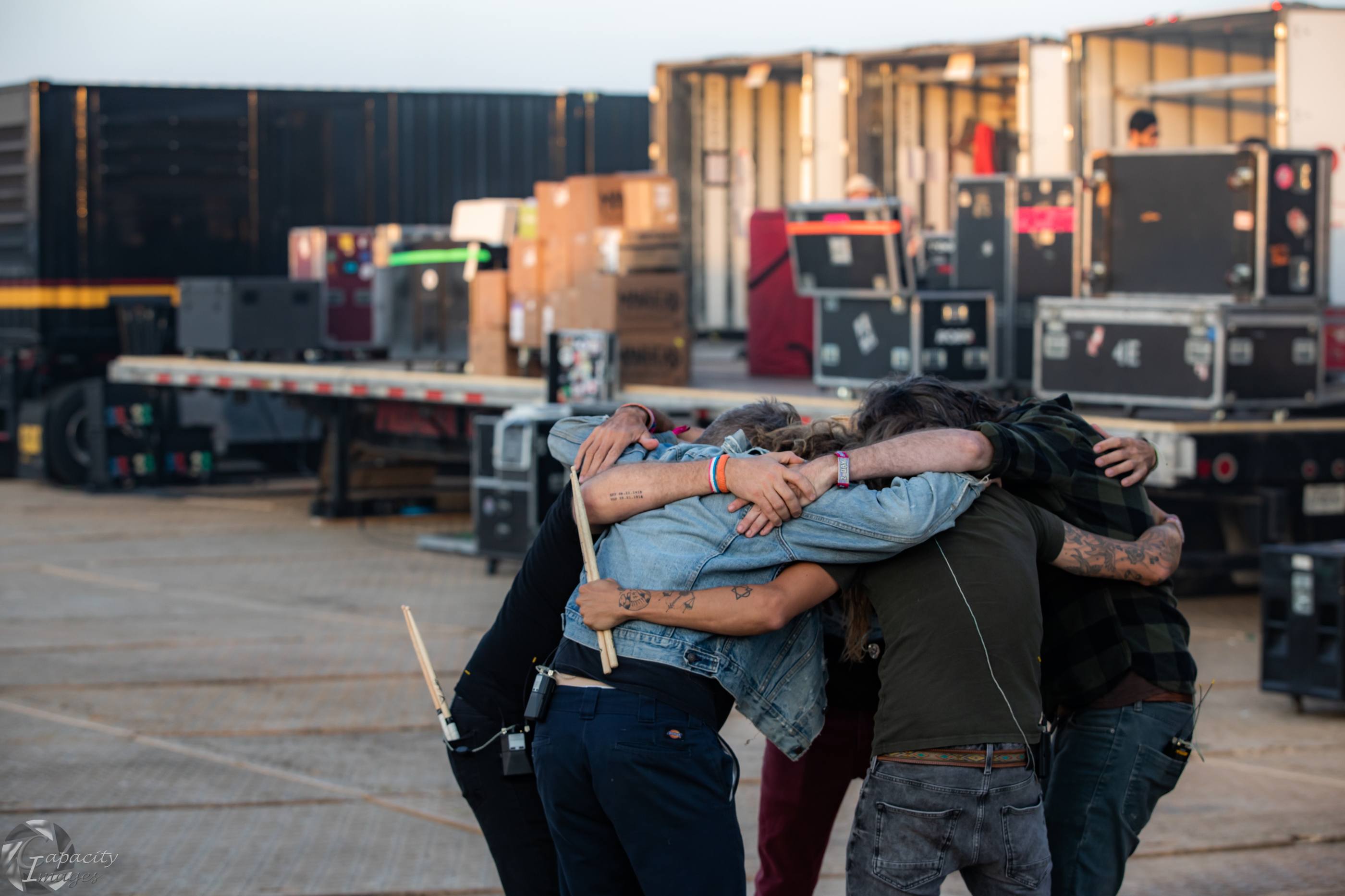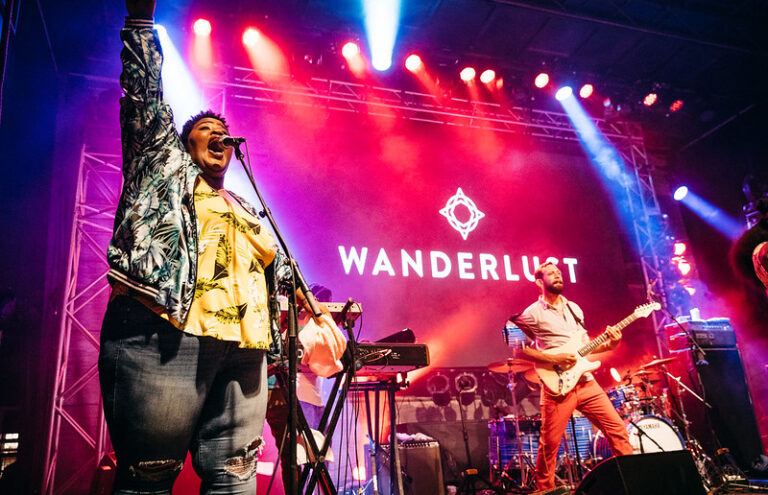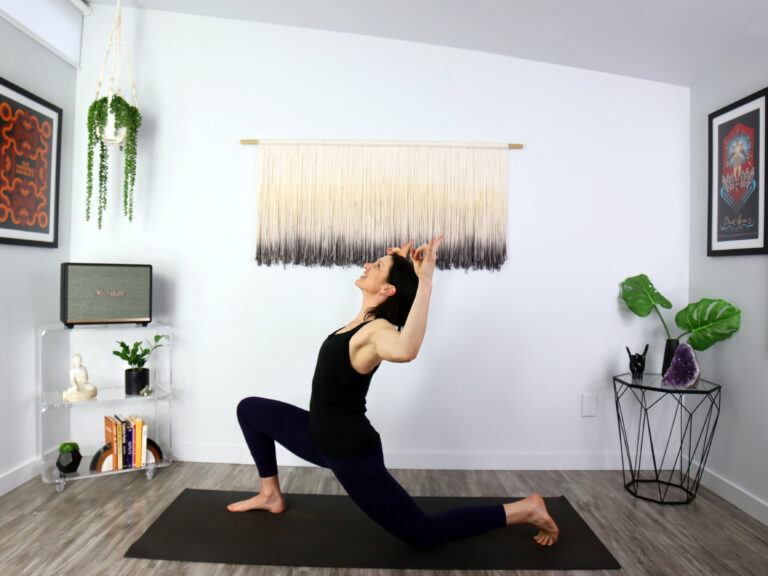
It’s a seemingly glamourous world. The thrill, danger and notoriety of life as a rock star is ingrained in our culture: an archetype of a demigod sustained by sex, drugs and rock n‘ roll. The reality is often worlds apart from the cliche: gruelling travel, extensive loneliness, economic uncertainty, and the scrutiny of living in the public eye can make for an enormously difficult path for a working musician. Enter COVID-19, which grounded the live events business completley in 2020 (including Wanderlust’s own worldwide events). With touring impossible, that took away the access to a paycheck, to community, and a means of expression: a perfect storm for an industry-wide mental health crisis.

This is why Wanderlust is humbled to be partnering with Backline—a national non-profit serving the professionals in music industry with access to one-on-one therapy and support groups—to abet their mission to provide mental health & wellness support and resources during this difficult time. Wanderlust is providing free access to Wanderlust TV for the Backline community, and developing custom content featuring top teachers whose passion and experience overlaps with the music industry.
“Wanderlust has been exploring the intersection of yoga and music since our inception in 2009,” expressed Wanderlust CEO, Sean Hoess. “Most of our team has been involved in the music industry at some point, and as fellow members of the events business, we know that COVID is more than an economic crisis: it has also triggered a mental health crisis for artists, staff and crew in the live music business. It’s for that reason that we’re so excited to partner with Backline to bring the benefits of yoga and meditation to musicians and their support crew.“
We’re utterly stoked to be announcing the first installment of this custom content with Backline Yoga with Gina Caputo, a woman who has rocked many a Wanderlust stage with a soul-stirring soundtrack, and who has shared stages with the likes of Michael Franti at Red Rocks. This woman knows how to rock, people.
 „Music is soul food,“ says Gina. „It is spirit food. I have loved music and in particular live music since childhood but I’ve never appreciated it more than this year, it has single-handedly brought me through this pandemic intact. These amazing musicians and the incredible teams that support them in every aspect of the work have had the rug pulled out from under them in a massive way. I want to support them in every way I can so the show always goes on.“
„Music is soul food,“ says Gina. „It is spirit food. I have loved music and in particular live music since childhood but I’ve never appreciated it more than this year, it has single-handedly brought me through this pandemic intact. These amazing musicians and the incredible teams that support them in every aspect of the work have had the rug pulled out from under them in a massive way. I want to support them in every way I can so the show always goes on.“
To learn more about the nuances of a musician’s livelihood and how a mindfulness practice can help, we sat down with Kendall Corso, Backline’s Co-founder and COO.
~~
Wanderlust: What was your impetus for launching Backline?
Kendall Corso: I dreamed of working in the music industry since I was a little girl and I spent the last 7+ years doing so. I’ve experienced firsthand the challenges that the industry demands and how it’s affected so many people (73%, according to a recent study). After a series of tragic losses in the music industry (Neal Casal, Jeff Austin, Chris Cornell, Chester Bennington, Butch Trucks), some important friends (Hilary Gleason, Tory Pittarelli, Stephen Grybowski) and I started hosting Zoom conversations with other industry professionals to find out why music industry professionals are so limited in receiving care. This turned into a mental health task force for the music industry that still meets to this day. Out of these meetings, and with a growing clinical team, we built a platform that brings together the network of individual practitioners and organizations that can facilitate a safer and more supported music industry.
WL: In what ways might the general public misconstrue the stressors of live music and touring life?
KC: Touring professionals often lack the resources and support networks they need to address mental health and wellness needs on the road. The music industry is constantly moving, which restricts lifelines like diet, exercise, relationships, and regular routine. While touring from city to city might seem glamorous, it is actually incredibly isolating and the perfect recipe for anxiety and depression. It also makes going back to reality difficult, and often requires a multi-day reintegration process–or mind-altering drugs.
WL: The music industry has long been entangled with the dark glamour of sex, drugs and rock n roll. Do you see a newer generation of music professionals eschewing that cliche and embracing a cleaner lifestyle?
KC: We’re living in a time that is finally starting to prioritize mental health and stability. It takes a LOT of work to exist in society, and to do so happily. People are really starting to support each other, and have vulnerable conversations about that fact. And luckily, those conversations include advice from the older generation to take care of yourself, ask for help when you need it, and support others.
While the music industry is experiencing its lowest low, we’re seeing a revolution of people taking charge of their lives by tapping into nature’s biggest gifts: breath, movement, nutrition. One of my goals with Backline is to help the community onboard these practices so that the routine and benefits are taken into their work lives, when the time comes.

WL: Even before the pandemic, the need to provide mental health and wellness support to touring professionals was needed, but in what ways have you seen this need grow in 2020?
KC: The challenges that touring professionals face have changed. Many people are home for an extended period for the first time in decades; people’s relationships with themselves and others are being magnified; and there’s no indication of when they will have a steady income again. With the majority of our community lacking health insurance or human resources, it’s been more important than ever for us to help point people in the right direction.
The „pivot pandemic“ challenged us all to maintain space that is entirely virtual. It required a lot of education, both internally and externally, to introduce mental health and wellness modalities to an ever-growing community of people in need. It demanded the rare opportunity of a touring professional being home for months at a time. The process ultimately revealed a special kind of openness to trying new practices in these desperate circumstances, a reality shared by most of the world.
WL: In what way will you be able to measure success for Backline – will it be indicated by how many music industry professionals are using the resources you provide, or is a shift in public awareness of mental health also part of the endgame?
KC: Backline takes a preventative approach, meaning that raising awareness and guiding people to the correct resources is our endgame. Everyone has mental health every day, and while it’s important to normalize the conversation, it’s also important to address it. By connecting people with the right clinical or wellness resources, we can create a lasting impact on how the industry grows.
~~
If you know someone in the music industry who could benefit from Backline’s support system, have them take a look at Backline’s services and encourage them to apply to get wellness resources (such as Wanderlust TV) right here.
